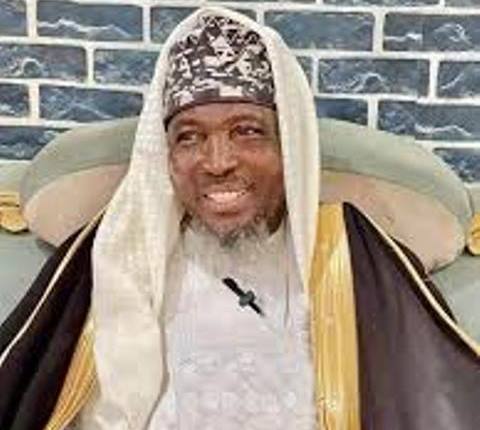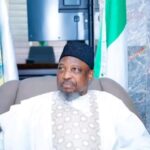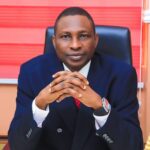On Monday, August 19, 2024, President Bola Ahmed Tinubu sacked Jalal Arabi as Executive Chairman, the National Hajj Commission of Nigeria (NAHCON) and replaced him with Professor Abdullahi Saleh Usman.
Chief Ajuri Ngelale, Special Adviser to the President (Media and Publicity), who announced the appointment did not give reasons for the sack.
He, however, said the president expected Professor Usman to discharge his duties “with integrity, transparency and utmost fidelity to the nation’’.
To many Nigerians, the announcement did not come as a surprise as Arabi and some key officials of the commission came under the spotlight for alleged mismanagement of the 2024 Hajj exercise.
- Food security: Caribbean states seek partnership with Nigeria
- Mutfwang suspends 2 commissioners, SA, liaison officer
Just like previous exercises, this year’s Hajj pilgrimage also ended with complaints ranging from poor feeding, increase in fares and deductions in the Basic Travel Allowance promised pilgrims.
The exercise was hitch-free in terms of the outbound and inbound transportation of the 50,383 pilgrims that performed the rites. According to the Assistant Director, Public Affairs of the National Hajj Commission, Fatima Usara, the return phase was conducted in 119 flights and concluded in 25 days, two days earlier than the outbound exercise.
Unfortunately, given what happened before, during and after the exercise, that seemed to be the only good side of the 2024 Hajj pilgrimage. The challenge arose from the sudden rise in the exchange rate, which raised the cost of pilgrimage from the initial N3 million to more than N6 million, forcing many who made initial deposits to withdraw as they could not meet up with the balance required.
In the end, out of the initial allocation of 95,000 slots given to the country by Saudi Arabia, only a little more than 50,000 were able to make it.
There were also reports of poor feeding and accommodation services in both Makkah and Madina, which led to protests by some pilgrims. The Governor of Niger State, Mohammed Bago, accused officials of NAHCON of shortchanging the pilgrims by providing poor services and called for outright scrapping of the commission.
But what brought more trouble for NAHCON is the N90 billion subsidy given by the federal government to support the registered pilgrims, in view of the change in the exchange rate, which made their initial deposit far short of what was required to meet the cost of the pilgrimage.
Many critics accused officials of the commission of mismanaging the subsidy while the former chairman said the fund was used judiciously. At a news conference in Abuja, Arabi said some pilgrims were supported with about N1.64 million from the N90 billion intervention fund.
“Each pilgrim was supported with N1,637,369.87 from the N90 billion except for pilgrims under the Hajj Savings Scheme who enjoyed more,’’ he said.
However, days later, Arabi and some key officials of the commission were invited by the Economic and Financial Crimes Commission (EFCC), following petitions it received on alleged fraudulent activities. Reports said the chairman and the secretary of the commission were detained at the EFCC headquarters and a substantial amount of money was recovered from them.
Similarly, investigators from the Independent Corrupt Practices and other related offences Commission (ICPC) were reported to have arrested some officials of NAHCON on similar allegations.
We at Daily Trust view the recent happenings at NAHCON as sad, especially coming from an organisation that is charged with ensuring that Muslim faithful are able to fulfill a lifelong ambition of a cardinal principle of their faith. It is unfortunate that it has become a common recurrence with many hajj exercises. Officials were either failing in their duties or shortchanging the pilgrims put under their trust and care.
Daily Trust believes this failure largely stems from the additional roles the commission delved into of being an operator, which led it into compromising its singular and important role of being a regulator and providing oversight on the activities of operators.
Section 4 of the Act that established the commission provides that it shall “License, regulate, supervise and perform oversight functions over organisations, associations (corporate and non-corporate) or similar bodies engaged in (i) organising and coordinating the movement of persons from Nigeria to Saudi Arabia to perform Hajj or Umrah; and (ii) providing accommodation, transportation and other services related to the performance of Hajj or Umrah in Saudi Arabia.”
However, NAHCON has over the years been the sole provider of accommodation and feeding of pilgrims in Madina instead of allowing states and tour operators to do that. NAHCON also engages in sundry activities of sponsoring health personnel, preachers, journalists and other officials, matters which should be the responsibility of the states. This incurs unnecessary overhead costs on the federal government and opens room for corruption.
We, therefore, urge the new chairman to take a serious look at all these issues with a view to rectifying them. He must ensure that NAHCON sticks with its primary duty of being a regulator.
We also call on government and relevant authorities to conduct a thorough probe into the conduct of all officials accused of fraudulent activities and ensure that those found to have breached the law are punished.
Hajj is an exercise that has a substantial foreign component, and it is in the interest of our country that we ensure its conduct is transparent and devoid of sharp practices.

 Join Daily Trust WhatsApp Community For Quick Access To News and Happenings Around You.
Join Daily Trust WhatsApp Community For Quick Access To News and Happenings Around You.

